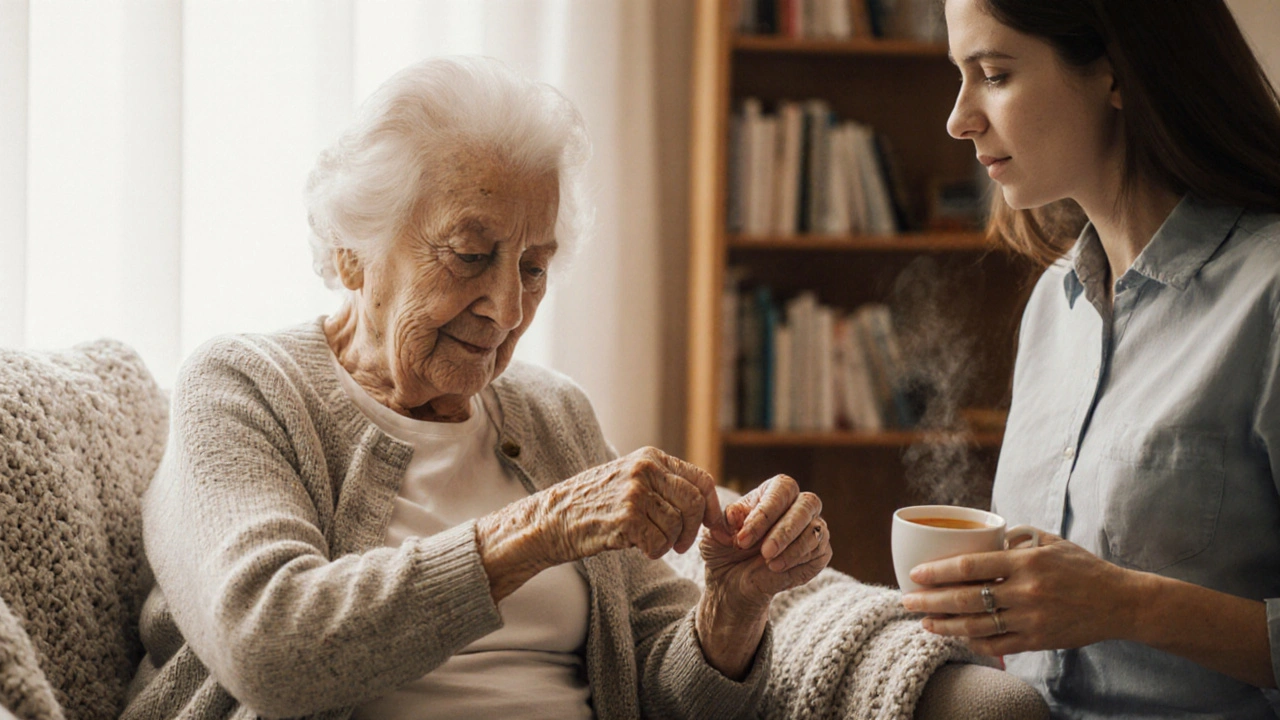Senior Skin Itching: Understanding, Managing, and Preventing Discomfort
When dealing with Senior skin itching, itching that commonly affects older adults, often caused by dry skin, medication side effects, or underlying health conditions. Also known as pruritus in seniors, it can turn a simple daily routine into an irritating challenge. Senior skin itching isn’t just a nuisance; it signals that something in the body or environment needs attention. Recognizing the root causes early helps avoid skin damage, sleep loss, and unnecessary doctor visits.
Key Triggers and Everyday Factors
One of the biggest culprits is dry skin, a common condition in older adults where the skin loses moisture and becomes flaky. As we age, sebaceous glands produce less oil, making the outer layer less supple. This loss of hydration creates tiny cracks that let irritants in, sparking the urge to scratch. Another frequent trigger is eczema, an inflammatory skin condition that can flare up with age and stress. Eczema patches often itch intensely, especially after exposure to soaps or fabrics that strip natural oils. Medications add another layer of complexity: many prescription drugs, from antihypertensives to cholesterol‑lowering agents, list itching as a side effect. When a new pill starts, a sudden itch may be the body’s warning sign. Even over‑the‑counter antihistamines, like generic Claritin or Zyrtec, can sometimes cause dry skin as they block histamine, which also helps keep skin hydrated.
Because antihistamines, drugs that reduce allergic reactions and relieve itching are a go‑to solution, it’s essential to match the right type to the right cause. First‑generation antihistamines (e.g., diphenhydramine) can calm the itch but often bring drowsiness, which may be risky for seniors prone to falls. Newer, non‑sedating options work well for chronic itch without the grogginess but may not address the underlying dryness. Knowing which class to pick depends on the itch’s origin: dry‑skin‑related itch often benefits from moisturizers and gentle cleansers, while allergy‑driven itch responds better to antihistamines.
Practical steps can keep itching at bay. Hydrating the skin twice daily with fragrance‑free creams restores the lipid barrier; look for products containing ceramides or urea. Warm (not hot) showers prevent further moisture loss, and a soft cotton or bamboo wardrobe reduces friction. When a medication is suspected, never stop it abruptly—talk to a pharmacist or doctor to explore alternatives or dosage adjustments. If the itch persists despite home care, a clinician might recommend prescription‑strength topical steroids, calcineurin inhibitors, or even a short course of oral antihistamines, all tailored to the senior’s overall health profile.
Below you’ll find a curated list of articles that dive deeper into specific aspects of senior skin itching. From detailed guides on safe antihistamine use to strategies for managing dry skin and eczema, each post offers actionable advice you can apply right away. Browse the collection to discover how to spot medication‑induced itch, choose the best moisturizing routine, and know when professional help is the right move. Armed with this knowledge, you’ll be ready to tackle itching head‑on and enjoy more comfortable days.

